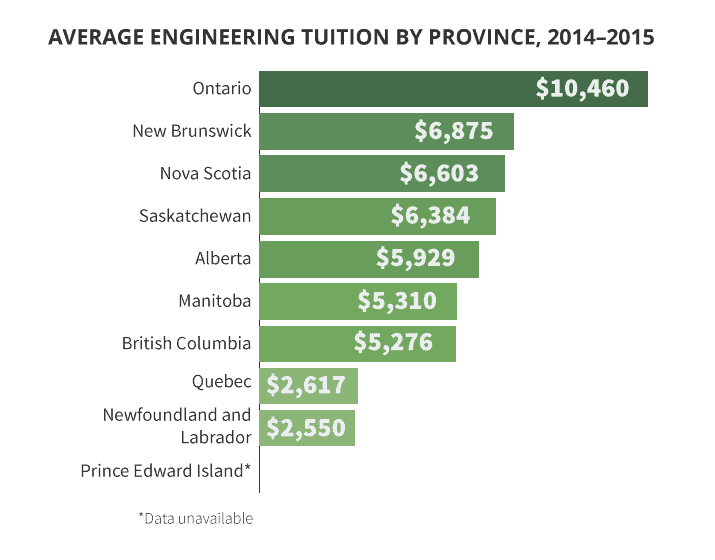With student debt as a recurring issue in Canada, rising tuition at the University of Toronto raises concerns among students who fear the uncertainty of their future post-graduation.
For domestic students, tuition has increased by three per cent for the faculty of Arts & Science, and by five per cent for engineering students. International students in the Faculty of Arts & Sciences face a more daunting nine per cent increase, while international engineering students face a ten per cent increase.
This controversial issue has formed divided opinions regarding the justification of tuition increases.
Funding unique opportunities
Catherine Riddell, the executive director of communication in the Faculty of Engineering, explained that the cost of engineering students’ required equipment pushes the University to “consider all sources of revenue” as provincial grants have remained relatively flat over the last few years.
Andrew Kidd, an engineering science student entering his second year at U of T, agreed with Riddell’s reasoning. “I believe the tuition increase for engineering students is quite fair,” Kidd said, taking into account the program-specific services to which engineering students have access.
“We have fantastic computer labs and servers through the Engineering Computing Facility, which includes almost a thousand pages of free printing per semester,” he added. Kidd also mentioned services such as engineering-specific career advisors and academic support available.
High tuition vs. high average projected income: a fair comparison?
Regarding the comparably high tuition for engineering students, Kidd rationalizes, “engineering is categorized as a professional degree for a reason: I maintain that it’s because the skills taught in an engineering education line up almost precisely with those required for relatively high-paying engineering positions.”
However, not everyone is as keen to buy into the ‘higher average projected income’ narrative. David Boroto, also a second-year engineering science student, argues that a higher projected income for engineers does not justify the tuition increase.
Second-year engineering student Anna Ye shares Boroto’s concerns. “Our tuition fees are already basically double [those of Arts & Science] fees and our projected incomes most definitely are not,” she said.
According to a 2014 study done by TalentEgg, a job board and online career resource, a civil engineer begins with an average salary of $51, 049 in Toronto. Other engineering fields vary in salary, but linger around that range, depending on the demand and the province. The Canadian Federation of Students states that after graduation, an average Canadian student ends up with $27, 000 in debt. This number is even higher among Faculty of Engineering graduates at U of T.
The issue of high tuition fees forces many prospective and current engineering students to evaluate their choice in education. Graduating from one of the top universities in Canada, an engineering student may enter into a comparably higher paying job, but the rising number of students caught in debt may cause second thoughts.
Ontario’s average annual tuition for those in the engineering discipline already exceeds other provinces at $10, 460 according to Statistics Canada in a study done for the 2014-2015 year. U of T’s engineering tuition stands even higher at $13, 620 for the year 2015-2016, almost double the $7, 151 national average cost of engineering tuition. Tuition in Quebec and in Newfoundland and Labrador are among the lowest in the country at $2, 617 and $2, 550 respectively.



